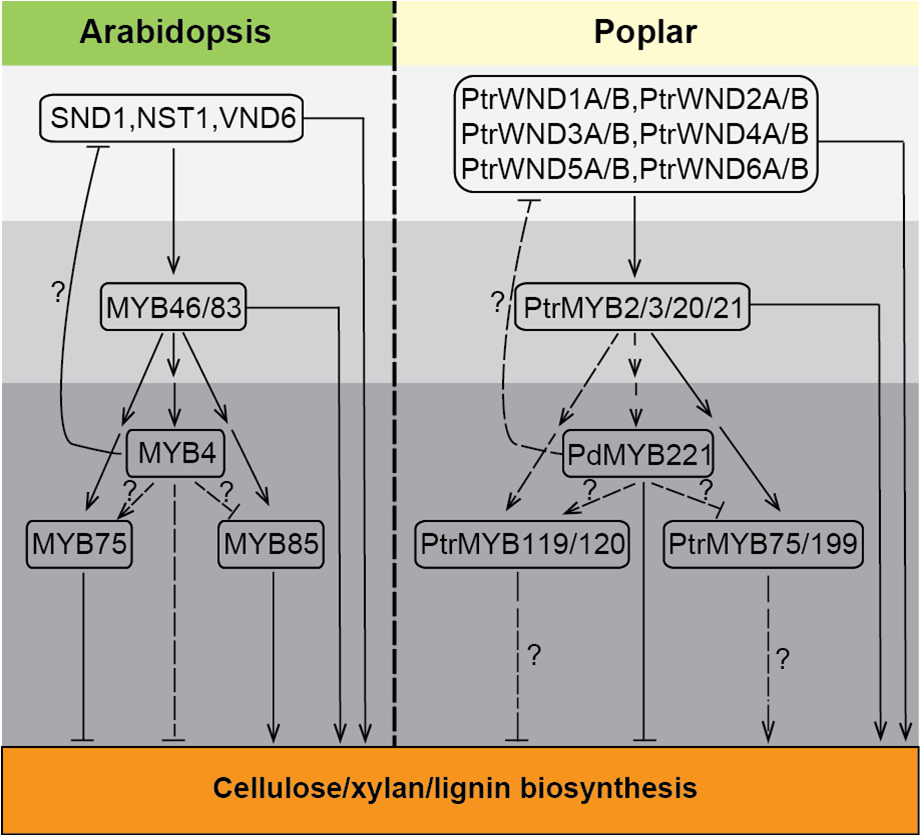
As a dominant terrestrial biomass, wood is used for myriad applications such as construction, paper making, pulping and as a feedstock for biofuels. It is challenging to elucidate the molecular mechanism that underlies wood formation and controls poplar vegetative growth phase. This is an efficient strategy to increase biomass utilization.
The Plant Metabolic Engineering Group led by Prof. ZHOU Gongke at Qingdao Institute of Bioenergy and Bioprocess Technology (QIBEBT) of the Chinese Academy of Sciences has functionally characterized several poplar MYB transcription factors involved in secondary wall biosynthesis during wood formation. Their work was published in Journal of Experimental Botany and Scientific Reports.
Dr. CHAI Guohua and co-workers from the team have demonstrated poplar R2R3-MYB gene family contains 194 members that form 81 gene pairs. Chromosome placement, phylogenetic, and motif structure analyses showed that these gene pairs resulted from multiple types of gene duplications and had five different gene fates. Four gene pairs highly expressed in stems were further characterized. Of them, PdMYB10/128 acted as positive regulators of secondary wall formation. PdMYB90/167 and PdMYB92/125 regulated secondary wall formation and flowering time through mediating GA. PdMYB156/221 were involved in the direct and indirect regulation of secondary wall formation (Figure 1). These results may provide the theoretical basis for genetic engineering tree secondary cell walls.
This work was financially granted by the National Basic Research Program of China and the National Natural Science Foundation of China.
Figure 1 Diagram of the transcriptional networks regulating secondary wall biosynthesis in Arabidopsis and poplar. Poplar orthologs (PtrWND and PtrMYB) of these Arabidopsis regulators constitute a complicated network controlling secondary wall biosynthesis. PdMYB221 directly and indirectly suppresses gene expression of cellulose, xylan and lignin biosynthesis. (Image by QIBEBT)


86-10-68597521 (day)
86-10-68597289 (night)

86-10-68511095 (day)
86-10-68512458 (night)

cas_en@cas.cn

52 Sanlihe Rd., Xicheng District,
Beijing, China (100864)

